Fritextsökning
Artiklar per år
Innehållstyper
-
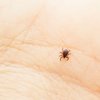
Nyckel till dödlig fästingburen sjukdom hittad av KI-forskare
Det extremt farliga Krim-Kongo blödarfebervirusets väg in i våra celler har identifierats av forskare vid Karolinska institutet – vilket kan bana väg för det första läkemedlet mot sjukdomen.
-

The life science strategy – what the industry wants
The process of updating the national life science strategy has begun at the government’s life science office. According to industry stakeholders, Sweden’s competitiveness, the accessibility of health data and the integration of innovation in healthcare are some of the points that are essential to review.
-

”We need compatibility“
Penilla Gunther, founder of Fokus Patient and chair of the European Patient Safety Foundation, hopes that the forthcoming life science strategy will focus on efficient and secure management of patient data and equal access to medicines.
-

Ny rapport: Bolagen fortsatt optimistiska om svensk hälsoexport
Trots oro i omvärlden och osäkerhet kring världsekonomin råder optimism bland svenska företag inom hälsoexport, enligt en ny rapport.
-
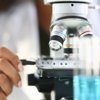
Spermosens rekryterar vetenskaplig chef
Spermosens rekryterar Maria Liljander som ny Chief Scientific Officer. Hon efterträder Kushagr Punyani i början av maj.
-
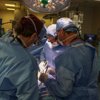
62-åring fick njure från gris i unik transplantation – "Återhämtar sig bra"
Amerikanska kirurger har genomfört den första transplantationen av en njure från en genmodifierad gris till en människa med njursjukdom.
-

Lista: Big pharma-bolagen som satsar mest på R&D
Merparten av de stora globala läkemedelsjättarna ökade sina forsknings- och utvecklingsbudgetar i fjol, men ett av dem sticker ut rejält, enligt en ny sammanställning.
-

Umeå vill växa inom life science
Umeå kommun aviserar en satsning på att locka fler life science-bolag. Strategin lyder ”Umeå Life Science City”.
-
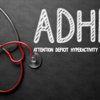
Nya rekommendationer vid adhd och autism – ”Stort steg i rätt riktning”
De nya nationella riktlinjer för adhd och autism innehåller för första gången rekommendationer om kognitivt stöd – och en ändrad rekommendation om sömntäcken för vuxna.
-

Anna Törner: ”Orphan Designation – the "petite robe noire" of drug development”
It is easy to cling to various regulatory incentives, like orphan designation, and other expedited pathways, without understanding what they truly mean or whether they are indeed right (or wrong) for the current project, Anna Törner writes in a column.
-

Specific proposals and targets top the universities’ desired priorities
What are the universities’ expectations for the update of the national life science strategy? Life Science Sweden posed the question to representatives from Karolinska Institutet and Sahlgrenska Academy.
-
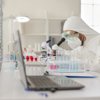
Nytt miljardförvärv stärker Astra Zeneca inom radiofarmaka
Astra Zeneca satsar inom radioaktiva läkemedel genom att köpa Fusion Pharmaceuticals för upp till 2,4 miljarder dollar, motsvarande drygt 25 miljarder kronor.
-
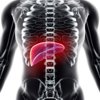
Första behandlingen mot vanlig leversjukdom godkänd i USA
Efter många år av utveckling har nu för första gången en behandling mot fettlever med leverskada godkänts av det amerikanska läkemedelsverket FDA.
-

Resultat för svenska fetmamedlet EMP16 presenterade – ”Nu är vi redo för fas 3”
Solnaföretaget Empros Pharma har presenterat nya studiedata för sitt läkemedel mot fetma. Arvid Söderhäll, vd för företaget, är nöjd med resultaten.
-

Venom from the deathstalker carries radiopharmaceuticals to the brain
In order to target cancerous brain tumours with radionuclides, the problematic blood-brain barrier must first be crossed. Life Science Sweden has visited a KI researcher who is trialling an unusual approach ‒ using scorpion venom.
-

“Life science is important on a personal level”
From the High Coast to the Government Offices. Jeanette Edblad is a native of Ångermanland, and since September last year, she has been Head and Coordinator of the Government’s Life Science Office.
-

Samuel Lagercrantz: ”Will the Swedish life science strategy be updated with precision?”
What will the Swedish government focus on in the life science strategy that is being updated? And what should be prioritized in the strategy? Life Science Sweden's editor-in-chief Samuel Lagercrantz highlights three areas.
-

“What is important is to create an overview and understanding from different perspectives”
Scientist Jochen Schwenk analyses blood proteins using proteomics to improve our understanding of disease and health. This year, he is moderating the Lab & Diagnostics of the Future event.
-

From Valneva to the CEO position at NorthX – “I saw it as a great opportunity”
A new cell therapy for leukaemia, a vaccine in tablet form against cholera, and a proprietary mRNA line with the potential capacity to supply the entire Nordic region with vaccines during a future pandemic. These are some of the projects underway
-

Marie Gårdmark: ”Interchangeable biological medicines – soon in a pharmacy near you?”
”Generic competition is an effective way to push down drug prices, but it has not worked equally well for biosimilars. Biosimilars require more time to gain market share compared to generics, and new biosimilars do not always lead to lower prices” writes
-

“Don’t postpone the transition to IVDR”
Operators who have not yet started to adapt to the requirements of the new EU IVDR regulation are running out of excuses. This is the opinion of Helena Dzojic, Head of Unit at the Swedish Medical Products Agency, who continues to persistently spread her
-

Novavax löser tvist om covidvaccin med vaccinorganisation
Det amerikanska vaccinbolaget Novavax har nu löst en tvist med den globala vaccinalliansen Gavi. Tvisten grundar sig i ett upphävt avtal om covidvaccin.
-

To build trust, one must be able to say “I don’t know” – whether human or AI
Will AI strengthen or break down trust? It depends on whether we can understand and accept its limitations, and our own, writes Sarah Lidé in a column.
-

KI’s new super machine measures brain activity in real-time – “A very expensive hairdo”
Using brand-new, super-advanced equipment, researchers at Karolinska Institutet can now measure brain activity in real-time, with higher resolution than previously possible. “This opens up fantastic opportunities”, says brain researcher Daniel Lundqvist.